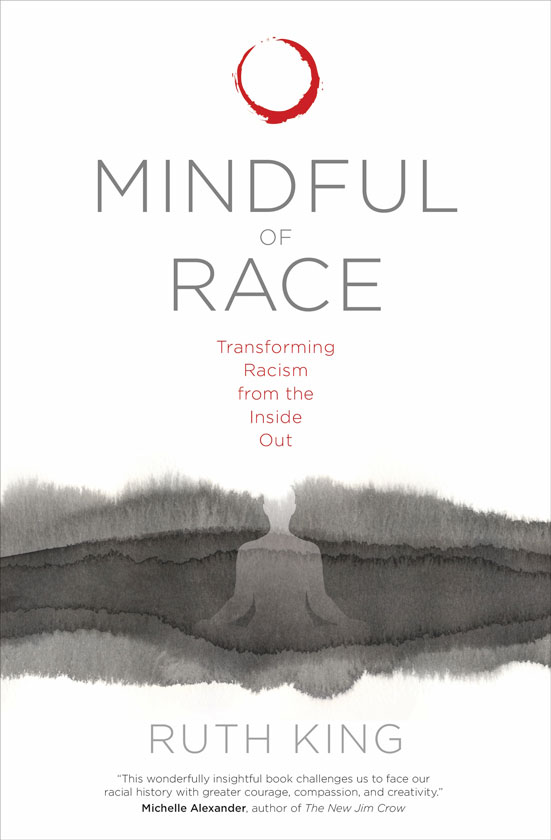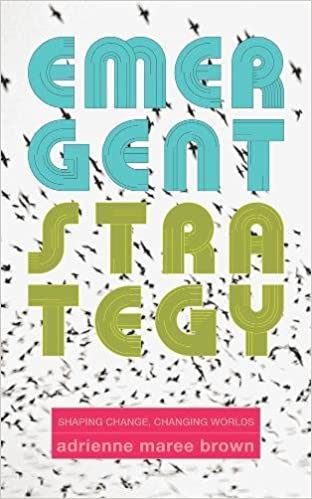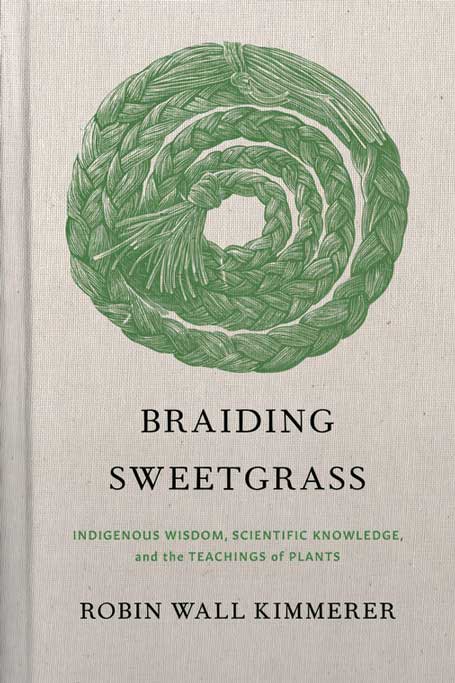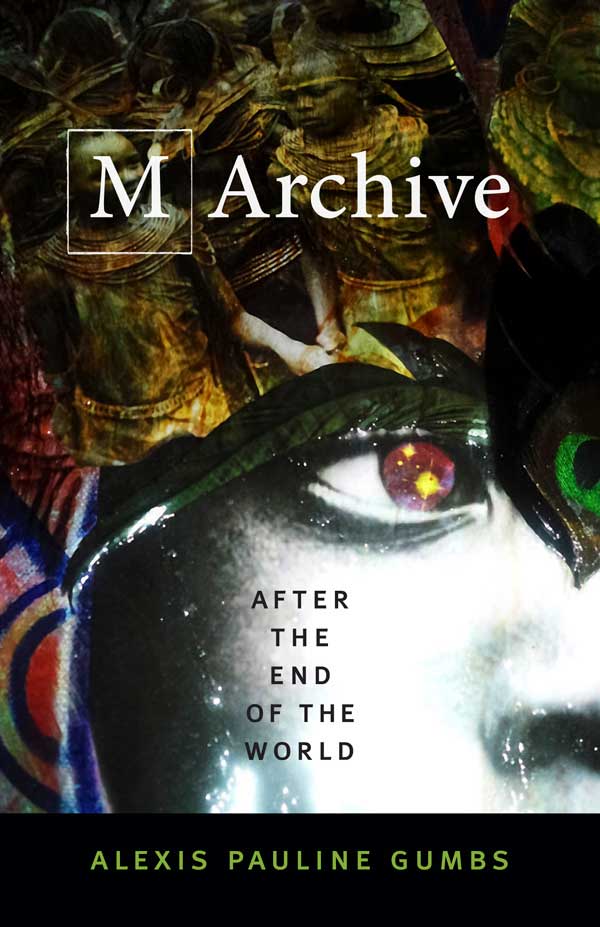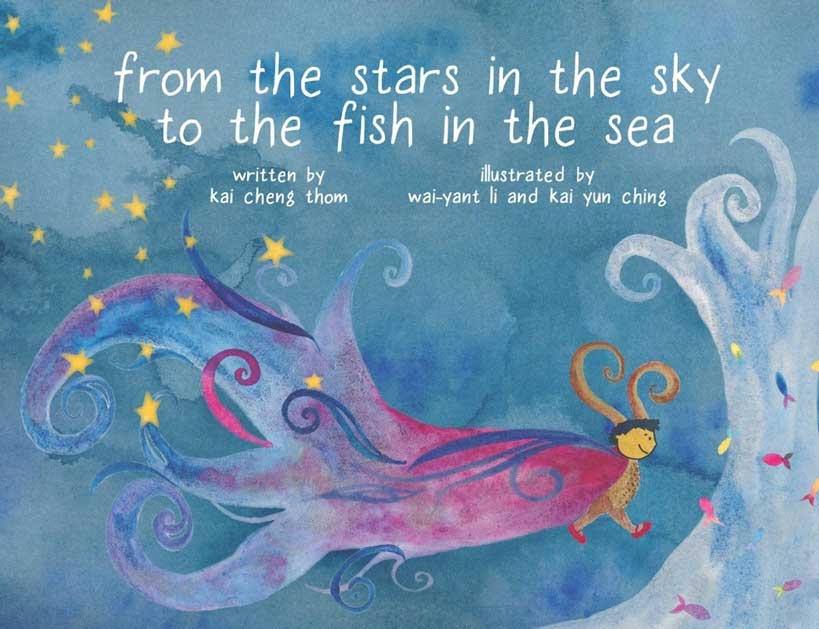In March, trying to think of a useful container to respond to what was unfolding, I asked my students to write and respond to the following questions:
What are the words, stories, lines, rituals and creative strategies we need for these times?
How do we practice breathing and care in times of disaster?
I didn’t ask my more hopeless question:
What is the use of writing and reading in these times when I can barely concentrate on anything for an extended period of time in the face of so much crisis and suffering?
This reading list is my own response to these questions with an eye towards understanding and perceiving the current state of the world with clear eyes and imaginative dreaming towards the future.
MINDFUL OF RACE: TRANSFORMING RACISM FROM THE INSIDE OUT
BY RUTH KING
What has been keeping me steady has been the practice of sitting in meditative community with other people of color, focusing on being present to the many emotions which surface without judgment (from numbness to grief to rage to despair). During these community meditations, I have been introduced to Ruth King’s work on racial distress by Geneviève Hicks, one of the leaders of the Mindfulness Community of Puget Sound’s People of Color meditation group. King’s book introduces a practice called RAIN (Recognize, Allow, Investigate, Nurture) in order to work on racial distress, which allows the practitioner to recognize what’s happening, allow oneself to be with what’s happening, investigate how one is relating to what’s happening and nurturing that distress. This is the internal work that King suggests we all need to do to allow ourselves to perceive with more clarity — and to eradicate racism.
EMERGENT STRATEGY: SHAPING CHANGE, CHANGING WORLDS
BY ADRIENNE MARIE BROWN
I first learned of adrienne marie brown’s ‘emergent strategy’ work during a workshop she organized as part of the Allied Media Conference, which focused on what kinds of organizing lessons we could learn from iconic speculative fiction writer Octavia Butler. As brown writes: “… what I noticed is that [Butler’s] leaders were adaptive–riding change like dolphins ride the ocean. Adaptive but also intentional, like migrating birds who know how to get where they’re going even when a storm pushes them a hundred miles off course.” brown’s Emergent Strategy encourages us to make change by moving away from “individualistic linear organizing (led by charismatic individuals or budget-building institutions)” towards a more collaborative, adaptive and resilient way of working together.
BRAIDING SWEETGRASS: INDIGENOUS WISDOM, SCIENTIFIC KNOWLEDGE, AND THE TEACHINGS OF PLANTS
BY ROBIN WALL KIMMERER
Robin Wall Kimmerer’s book begins with an invitation to a reciprocal relationship with the earth and the author — an invitation to the reader to imagine in hand “… a sheaf of freshly picked sweetgrass, loose and flowing, like newly washed hair.” We are then introduced to the colors, textures and scents of the sweetgrass; its scientific and Potowatami names and the meanings of those names; as well as a description of what is like to braid the sweetgrass, alone or, more sweetly, with another. This invitation opens to an entire book woven of “indigenous ways of knowing, scientific knowledge, and the story of an Anishinabekwe scientist trying to bring them together in service to what matters most.” As a young person, I was discouraged from pursuing science as a student because of sexist expectations, which Wall Kimmerer addresses in her book. Because of this, it was a surprising joy to reconnect to the wonder and beauty of listening deeply to the natural world and our attendant responsibility to a reciprocal relationship with it.
M ARCHIVE: AFTER THE END OF THE WORLD
BY ALEXIS PAULINE GUMBS
I am deeply inspired by Alexis Pauline Gumbs’ work as a public intellectual and speculative dreamer. M Archive: After the End of the World is the second book of an experimental triptych responding to Black foundational feminist texts. M Archive is an “ancestrally cowritten text” to M. Jacqui Alexander’s Pedagogies of Crossing: Meditations on Feminism, Sexual Politics, Memory, and the Sacred, imagined as “speculative documentary … written in collaboration with the survivors, the far-into-the-future witnesses” of Black life which survives after the end of the world. I appreciate the way that M Archive slips between collective story, field notes, meditative text and periodic table of elements all as valid ways of understanding this kind of survival. This book dreams about the end of the world as we know it, in a way which makes me hopeful about what will come.
FROM THE STARS IN THE SKY TO THE FISH IN THE SEA
BY KAI CHENG THOM, WAI-YANT LI and KAI YUN CHING
As a young person, I was a voracious reader, but don’t remember ever reading any books (either on my own or assigned) with trans, non-binary or gender expansive characters. As a non-binary adult partnered to Cassie Mira, a trans woman with two kids, I wanted to share books with the kids which were more reflective of our family, but there wasn’t much available. I loved following the adventure of the ever-changing Miu Lin through the whimsical combination of Kai Cheng Thom’s words and Wai-Yant Li and Kai Yun Ching’s illustrations. I loved reading about a young non-binary person who is loved and nurtured by their mother but questions who they are when they go to school and realize that they don’t fit in. This is a book which feels true to the experience of having to choose how to navigate a world which doesn’t recognize who you are/will be and how to do it with vulnerability and grace.
